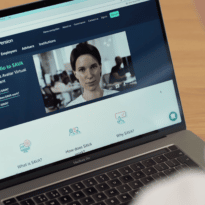96% of paraplanners and administrators agree that greater integration and automation between systems would enable provision of better and faster service to clients, according to research carried out by Origo.
The research* was conducted with over 200 paraplanners and administrators, with the vast majority saying they were spending too much of their day performing basic admin tasks, such as re-entering details and moving data between systems – due to no or poor integration between systems.
Paraplanners identified two main areas where inefficient systems integration was causing most problems and inefficiencies, which were “preparation of client review packs” with over 40% of respondents agreeing that this process was their “biggest pain point”, and onboarding of new clients (30% of respondents).
This research follows a white paper A Disconnected World: The Adviser’s Reality, published by Origo in September 2019** based on research it had undertaken with the lang cat consultancy – an in-depth study of the working practices of 10 advice firms, focusing on key business processes and how systems work together – or not – and the impact on the firms’ productivity.
The white paper research found paraplanners and administrators to be the ‘superheroes’ of advice offices – working at the coal-face of systems – often covering up cracks and using workarounds to provide clients with a service they expect.
It found that through proper and efficient integrations, an advice firm could easily double its assets under advice.
Anthony Rafferty, managing director, Origo, says: “If the industry is to progress in terms of productivity and cost efficiencies and to provide a better service to clients, we believe integrations between systems should simply be the norm. This will not only improve advice firms’ efficiencies but will also allow for more innovation and greater competition in the market.
“For too long, the point-to-point (1:1) approach to integration has been hampering innovation. It is typical, and understandable, to find that to date, those with the deepest pockets and greatest market coverage have been using APIs as a means of differentiation to gain market advantage. However,
“There may be still a place for point-to-point integrations, however in 2020 we expect basic levels of integrations to be at a stage where more and more advice firms, and in particular paraplanners and administrators within firms, can perform basic tasks between systems. This would enable greater delivery of improved outcomes both for their businesses and importantly, the end client.
“This is why we have developed the Integration Hub, a hub-and-spoke model that does away with point-to-point integrations and multiple set-up costs, risks and maintenance overheads which comes with that method. Instead, a system or platform has just one integration to set-up and is then connected to all other parties.
“This is about raising the industry’s benchmark for system integrations across the board which, we believe, as we head into this new decade, is well overdue.”
*The full paraplanners and admin research findings can be downloaded from here:
** The white paper goes into this issue for adviser firms in more depth and can be found here: www.origo.com/advisersreality



































